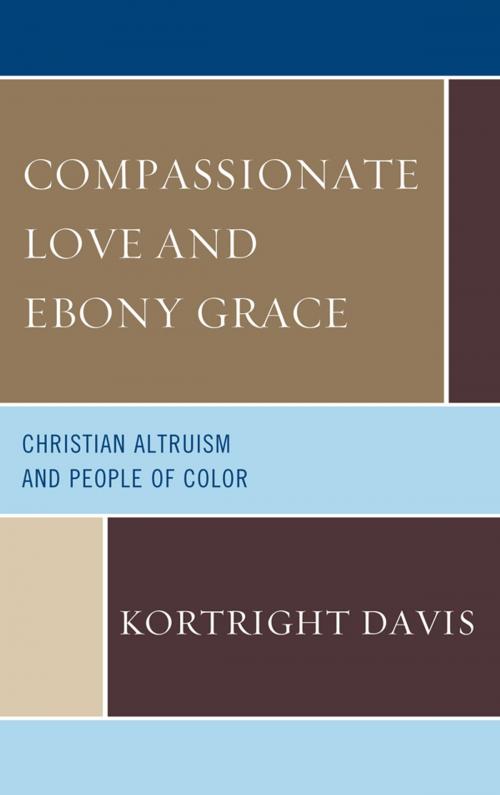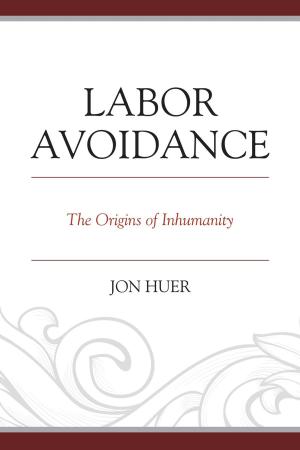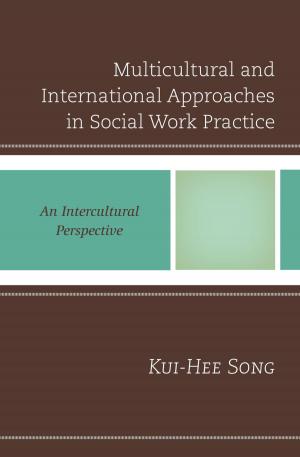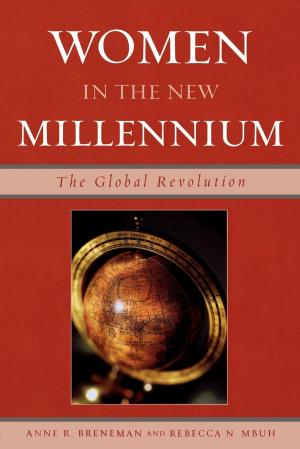Compassionate Love and Ebony Grace
Christian Altruism and People of Color
Nonfiction, Health & Well Being, Psychology, Interpersonal Relations, Social & Cultural Studies, Social Science, Cultural Studies, African-American Studies, Religion & Spirituality, Christianity, Christian Life| Author: | Kortright Davis | ISBN: | 9780761856382 |
| Publisher: | Hamilton Books | Publication: | March 22, 2012 |
| Imprint: | Hamilton Books | Language: | English |
| Author: | Kortright Davis |
| ISBN: | 9780761856382 |
| Publisher: | Hamilton Books |
| Publication: | March 22, 2012 |
| Imprint: | Hamilton Books |
| Language: | English |
Why is the Golden Rule so central in almost every culture and religion? What is it that drives human beings to do good to others? Are altruism, compassion, and forgiveness natural forms of human behavior, or do they have to be learned and practiced in the neural context of our primal instincts for survival and self-defense? These are some of the questions that lie behind the study of Compassionate Love amongst people of color. Davis explores the patterns and contours of “other-love,” which he defines as a selfless regard for the well-being of others. He also examines the basis for distinctive modes of compassionate behavior enriched by “ebony grace” — a theological attribution for people of African descent. This text focuses especially on the historical, cultural, and religious heritage that inspires and empowers such attitudes, in spite of constant encounters with systemic negation, social alienation, and unrelenting racism. How is it that Black families in the home, school, and church still support, sustain, and succeed in the practice of unyielding love-in-compassion? That is the magic and mystery within contemporary Black cultural norms and moral values. This text is a powerful attempt to contribute to the debate on Christian altruism.
Why is the Golden Rule so central in almost every culture and religion? What is it that drives human beings to do good to others? Are altruism, compassion, and forgiveness natural forms of human behavior, or do they have to be learned and practiced in the neural context of our primal instincts for survival and self-defense? These are some of the questions that lie behind the study of Compassionate Love amongst people of color. Davis explores the patterns and contours of “other-love,” which he defines as a selfless regard for the well-being of others. He also examines the basis for distinctive modes of compassionate behavior enriched by “ebony grace” — a theological attribution for people of African descent. This text focuses especially on the historical, cultural, and religious heritage that inspires and empowers such attitudes, in spite of constant encounters with systemic negation, social alienation, and unrelenting racism. How is it that Black families in the home, school, and church still support, sustain, and succeed in the practice of unyielding love-in-compassion? That is the magic and mystery within contemporary Black cultural norms and moral values. This text is a powerful attempt to contribute to the debate on Christian altruism.















